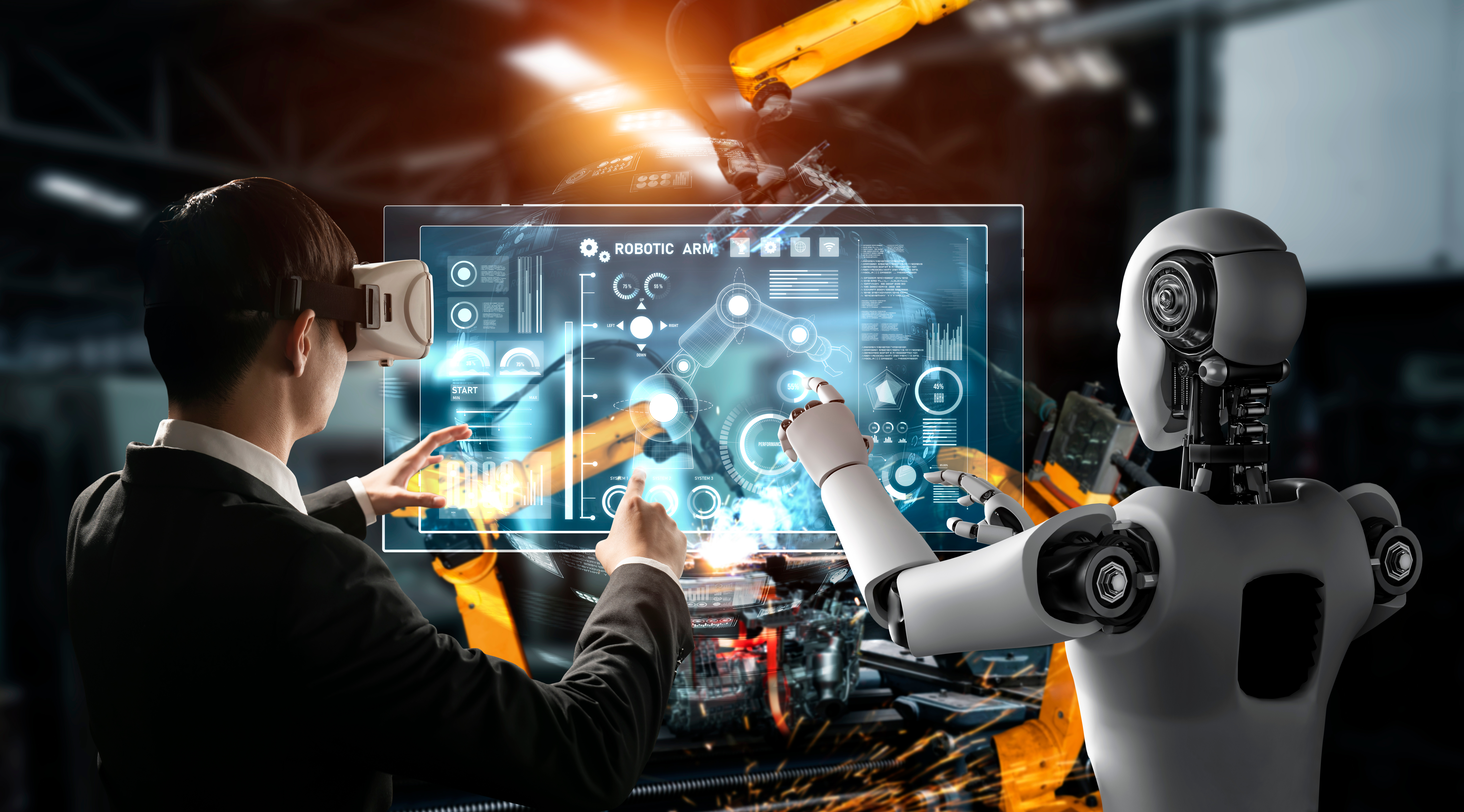Author
 Andrew Mutch
Having previously worked as an aircraft technician with HM Forces, Andy is one of our Professional Services Consultants and has been with EPLAN for 10 years. Part of Andy's role is to actively analyse customers processes, develop solution concepts and workflows for customer requirements. Andy is also our resident Harness expert!
Mutch.a@eplan.co.uk
Andrew Mutch auf LinkedIn
Andrew Mutch
Having previously worked as an aircraft technician with HM Forces, Andy is one of our Professional Services Consultants and has been with EPLAN for 10 years. Part of Andy's role is to actively analyse customers processes, develop solution concepts and workflows for customer requirements. Andy is also our resident Harness expert!
Mutch.a@eplan.co.uk
Andrew Mutch auf LinkedIn
What Is Industry 4.0?
Industry 4.0 Explained – The ‘Fourth Industrial Revolution’
Commonly referred to as the fourth industrial revolution, Industry 4.0 rests on cyber-physical systems in several production areas:
- Interconnectivity between machinery and processes in the value chain: the IoT concept reaching maturity in industrial applications, also known as the Industrial Internet of Things (IIoT), a concept that embraces not just Internet-enabled plant, but also people and processes.
- Smart automation, including machine-to-machine communication across wireless and wired networks, and digitalisation, enabling automation programs to facilitate production processes across different applications and using different file types.
- Machine learning and artificial intelligence (AI) are software algorithms that equip a software application with greater responsiveness and performance potential when managing real-world production processes.
- ‘Big data’ and real-time data management and analytics
- Cloud computing uses remote servers and applications to operate production processes, and to store, manage and analyse data.

How To Define Industry 4.0?
How are all these trends different to Industry 3.0, and why does it matter for manufacturers looking to the future?
‘Industry 3.0’, although only rarely used as a term at the time, refers to the period between the mid-1990s and late 2010s in which manufacturers increasingly adopted computers, electrical control systems, information management, and automation as a means of improving and streamlining production processes.
All of this is still recognisably a part of Industry 4.0, but the big difference is that while 3.0 dealt solely with mechanical processes and machines, e.g. robotic production lines, 4.0 gives far greater opportunity for machine learning and software systems to embrace a wider range of production factors.
In a ‘smart factory’, a business that invests in Industry 4.0 technologies, many manual processes are implemented by sophisticated software applications that are programmed to use real-time data to make intelligent production decisions.
This doesn’t supplant or replace human engineers. What it does is provide greater interconnectivity and visibility over production processes, helping engineers produce products more efficiently, at a lower cost, and with greater output, than they could without the support of these assets.
Automation And Business Intelligence
For visionary start-ups and smaller businesses, in particular, the collection of real-time data from factory floors, combined with other operational value chain data, enables better and faster decision-making. By identifying internal and external success factors, a smart business owner is in a better position to avoid expensive mistakes, to capitalise on opportunities, and gain a competitive advantage over other upcoming producers.
The use of Industry 4.0 technologies also allows for predictive maintenance and analytics throughout the manufacturing process, allowing a more collaborative approach to customer relationships and a more extensive level of personalisation to meet client requirements.
What Next?
EPLAN provides electrical design solutions that enable innovative businesses to reduce costs and achieve a better market advantage when implementing Industry 4.0 manufacturing processes. Our industry-leading solution – trusted by market leaders since 1984 – enables consistent, integrated and fast engineering to help your business take full advantage of the latest digitalisation and smart factory technologies.
For more information about EPLAN and which electrical software solutions to choose for your business, please call 01709 704100 today.



Comments